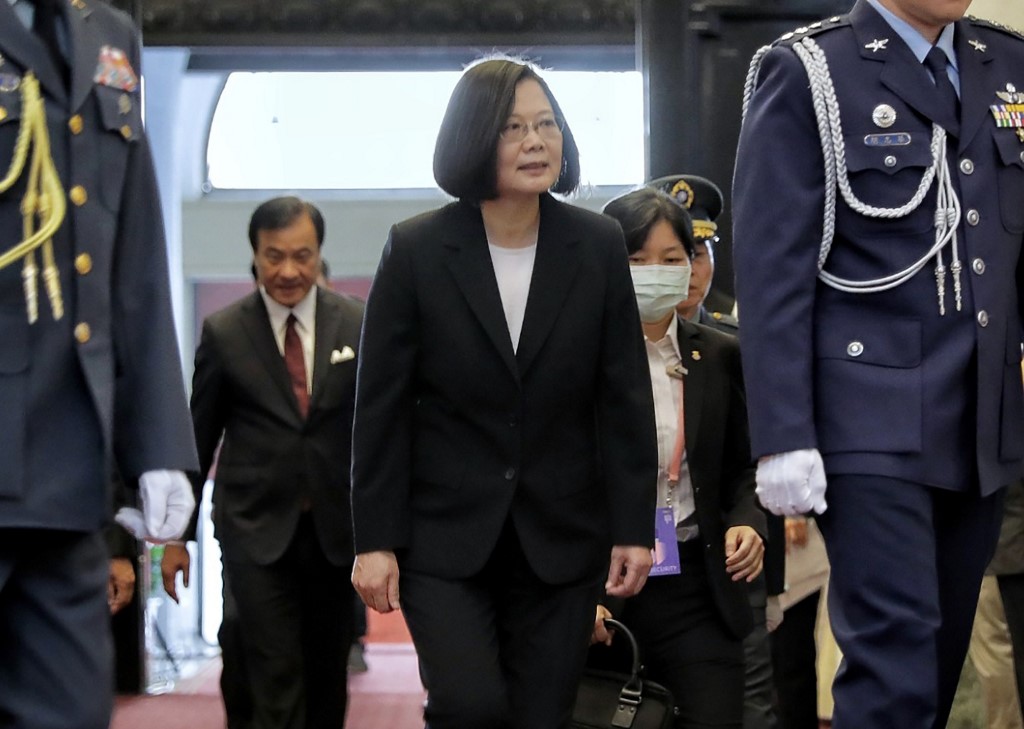(ATF) Hong Kong people and professionals are welcome to apply for long-term residence or to settle in Taiwan, Zhang Dunhan, a spokesman for Taiwan’s Presidential Office said on Tuesday.
His remark came after Hong Kong’s One Media Group founder Li Zhiying called on Taiwan to allow more Hong Kong people to immigrate.
China’s plan to introduce a “Hong Kong version of the National Security Law” has caused panic among residents in the financial hub. Academics in the city say that Hong Kongers are worried that their freedom will be suppressed, and that may accelerate the trend for citizens to move to live elsewhere.
Taiwan’s President Tsai Ing-wen on Wednesday pledged a humanitarian “action plan” for Hong Kongers pushing for democracy in the financial hub as an influx of activists seek sanctuary on the self-ruled democratic island.
Hong Kong was upended by months of often violent pro-democracy protests last year sparked by rising fears that Beijing is chipping away at the city’s freedoms. Unrest has returned in recent days after Beijing announced plans last week to impose a sweeping national security law in response to the protests – a move that has alarmed many western governments and Taiwan.
Beijing claims sovereignty over Taiwan and has vowed to one day seize it, by force if necessary. Its leadership loathes Tsai because she regards the island as a de facto independent state and not part of “one China”.
Speaking about the new security law plans, Tsai urged Beijing to “rein in the horse at the edge of the precipice” and said her administration would continue to offer assistance to Hong Kongers seeking to relocate.
“Our determination to look after Hong Kongers has remained unchanged,” she told reporters.
“The cabinet will come up with a Hong Kong humanitarian assistance action plan… to provide complete planning for Hong Kong people’s residency, accommodation and care.”
Tsai said the office that deals with Chinese affairs – the Mainland Affairs Council – would be tasked with drafting the plans.
Last year over 5,000 Hong Kongers moved to Taiwan, up 41% from a year earlier, some of them fleeing prosecution over the protests or seeking a new life in one of Asia’s most progressive democracies.
Tsai’s comments came as rights groups urged her government to enact a refugee law to help Hong Kong protesters fleeing to the island.
Taiwan does not recognise the legal concept of asylum or accept refugee applications, fearful of a potential influx from the authoritarian mainland. But Hong Kongers can apply to live on the island through a variety of means, including investment visas.
Taiwanese law also stipulates unspecified “necessary assistance” for Hong Kong and Macau residents whose safety and freedom are in urgent danger due to political reasons.
Taiwan-based rights group Hong Kong Outlanders urged Tsai’s government to set up a clear asylum system soon at a press conference on Wednesday.
“The national security law will have devastating effects on Hong Kong and we expect a large number of Hong Kong protesters to come to Taiwan to seek help when the pandemic eases,” Kuma Yung, a spokesman for the group, said.
One Media Group founder Li Zhiying tweeted a question toward President Tsai on Tuesday, asking: “Will you consider relaxing the immigration law to allow more Hong Kong people to immigrate to Taiwan?”
Tsai’s spokesman Zhang replied: “In fact, Hong Kong people are now emigrating to Taiwan. If Li Zhiying, the founder of One Media Group, wants to apply, there is now a mechanism to handle it, and the Taiwan government will also provide necessary assistance in accordance with the law.”
With regard to the “tide of immigration” from Hong Kong in recent years, Hong Kong 01 quoted Zhong Jianhua, deputy chief executive of the Hong Kong Institute of Public Opinion, said this was linked to social unrest and dissatisfaction. In recent years, Hong Kong’s political scene had changed, along with Beijing’s policy on the city should be governed.
Given the recent storm over the national security law proposed for Hong Kong, it is not surprising, perhaps, that the Google search engine has seen a rise in people seeking information using keywords such as “immigration” and “VPN” (the latter related to Virtual Private Networks that avoid the Chinese firewall). Zhong said Hong Kong people were worried that their freedom would be reduced and that existing values will be affected, which may speed up moves by people considering immigrating to live elsewhere.
Zhong said that before the transfer of Hong Kong’s sovereignty in 1997, middle-aged people mainly held certain assets and chose to immigrate to countries in Europe and America. But nowadays, young people were look for places where they could immigrate for a relatively low cost, such as Taiwan.
Meanwhile, a long work report on the National People Congress in Beijing noted that amendments to the Criminal Law (number 11) were adopted to “modify the Administrative Penalty Law and the People’s Armed Police Law, focusing on accelerating the construction of a legal system applicable to outside of China’s jurisdiction.”
No further details were available.
With reporting by AFP
























